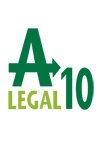Best Wrongful Termination Lawyers in Bree
Share your needs with us, get contacted by law firms.
Free. Takes 2 min.
List of the best lawyers in Bree, Belgium
About Wrongful Termination Law in Bree, Belgium
Wrongful termination refers to a dismissal that breaks the rules set out by Belgian employment law, collective agreements or individual employment contracts. In Bree, as elsewhere in Belgium, most dismissals are handled under federal employment rules. Employers must follow statutory procedures when ending an employment relationship - for example by giving the correct notice, respecting protected periods and observing special rules for collective redundancies or transfers of undertaking. If an employer fails to follow these rules, the dismissed worker can challenge the dismissal before the Labour Court and seek remedies such as payment for notice, damages or other compensation.
Why You May Need a Lawyer
You may need a lawyer if you face a dismissal that seems unfair or unlawful. Common situations include:
- Your employer dismissed you without giving the correct notice or without paying notice in lieu.
- You were dismissed during a protected period, for example while on pregnancy leave, parental leave, or in connection with workplace injury or sickness - and you believe the dismissal was linked to that protected status.
- You suspect the dismissal was discriminatory or retaliatory - for example for whistleblowing, union activity or asserting statutory rights.
- Your employer carried out a redundancy or collective dismissal without following consultation or notification obligations.
- You work under a fixed-term or temporary contract and your employer treated you differently than other employees or used successive fixed-term contracts unlawfully.
- You have an employment contract dispute about severance, bonuses, unpaid wages, accrued holiday pay, or whether you were dismissed for an urgent cause.
- You want to negotiate a settlement and need advice about what compensation or terms are reasonable, or you want representation in the Labour Court.
Local Laws Overview
Key legal aspects relevant in Bree, Belgium include:
- Federal framework - Employment law in Belgium is primarily federal. This means the same basic rules on dismissal, notice periods, severance and protections apply in Bree as in the rest of Belgium.
- Termination methods - Most indefinite-term contracts are ended either by giving the legally required notice or by dismissing for urgent cause. Notice periods depend on length of service and the applicable wage calculation methods. Employers can instead pay indemnities in lieu of notice.
- Protected categories and periods - Belgian law provides special protections for certain situations and categories, such as pregnancy, maternity and parental leave, trade-union activity, and some sickness or workplace accident situations. Dismissals that breach these protections can be declared null or may give rise to enhanced compensation.
- Collective dismissals and consultation - For dismissals that affect groups of employees, employers must comply with specific rules on information and consultation with employee representatives and notify relevant authorities. Failure to comply can affect the legality of the dismissals and trigger additional compensation obligations.
- Transfer of undertakings - When a business or part of it transfers to a new employer, employees generally transfer with their rights intact. The new employer must respect existing contracts and collective agreements.
- Remedies and courts - Employment disputes are decided by the Labour Court. Remedies commonly include payment of notice or severance, damages for unfair dismissal and, in some cases, ordering reinstatement. Awards depend on the facts, type of contract and legal breaches established.
- Language and procedure - Proceedings in Bree and Limburg province will generally be conducted in Dutch. Legal documents and court forms are subject to strict procedural rules and time limits - consulting a lawyer who knows local practice and language is important.
Frequently Asked Questions
What counts as wrongful termination in Bree?
Wrongful termination can include any dismissal that violates statutory rules, a collective agreement or an employment contract - for example failure to give correct notice, dismissal in a protected period, discrimination, or ignoring consultation requirements in a collective redundancy. The precise classification depends on the facts and applicable legal provisions.
How soon should I act after being dismissed?
You should act promptly. Employment disputes often have strict deadlines for starting proceedings and preserving evidence. Even if you plan to negotiate with your employer, contact a lawyer or a union representative quickly to understand time limits and preserve key documents.
Can I be reinstated if my dismissal was wrongful?
Reinstatement is possible but uncommon. Labour Courts more often award financial compensation or order payment of notice and damages. Whether reinstatement is realistic depends on the working relationship and the specific circumstances of the case.
What kind of compensation can I expect?
Compensation can include unpaid wages, payment for notice or indemnity in lieu of notice, accrued holiday pay, and damages for unlawfulness or discrimination. The amount varies with the length of service, wage level, the employer's conduct and whether statutory protections were breached.
Do I need a lawyer if I am covered by a union?
A union can offer significant assistance - negotiation, internal procedures and representation in meetings. However, you may still need a lawyer for legal strategy, court representation or complex cases. Trade unions and lawyers often work together to achieve the best result.
What happens if I was dismissed while on sick leave or after a workplace accident?
There are special protections and rules that may limit an employer's ability to dismiss during certain periods related to illness or workplace accidents. Whether your dismissal was lawful depends on the cause and timing of the termination. Seek legal advice to assess protection rights and possible remedies.
Can an employer dismiss me without a written reason?
Employers are not always required to provide a detailed written reason for dismissal, but courts will look at the real reasons behind a termination. If you suspect the reason is discriminatory or unlawful, a lawyer can help obtain evidence and challenge the termination in court.
What if my employer offers a settlement agreement?
Settlement agreements can be an efficient way to end a dispute. Before signing, get legal advice to ensure the offer is fair, that you understand tax and social security consequences and to preserve any rights. A lawyer can negotiate better terms or advise if going to court would produce a higher recovery.
Where do I file a claim in Bree?
Employment disputes are heard by the Labour Court. Your claim will generally be filed in the Labour Court that has jurisdiction over the place where you worked. A local employment lawyer will advise on the correct court and filing procedure.
Can I get legal aid to pay for a lawyer?
Legal aid may be available depending on your income and the nature of the case. Belgium has systems for subsidised legal assistance. If you qualify, a lawyer can be provided at reduced cost or for free for parts of the procedure. Ask a lawyer, your municipality or a local legal aid office about eligibility.
Additional Resources
Useful organisations and resources to consult in Bree include:
- The Labour Court - the judicial body that hears employment disputes.
- VDAB - the Flemish public employment service which manages unemployment registration and reintegration services in Flanders.
- Federale Overheidsdienst Werkgelegenheid, Arbeid en Sociaal Overleg - the federal public service responsible for employment and labour law policy.
- Unia - the Belgian independent body for equal opportunities and anti-discrimination complaints.
- Local trade unions - for example ACV, ABVV and ACLVB - which offer advice and representation in workplace disputes.
- Local legal aid offices and municipal services - for information on access to subsidised legal assistance and procedural support.
- Private employment lawyers and law firms experienced in Belgian labour law - for case assessment, negotiation and court representation. Make sure any lawyer you consult can operate in Dutch if proceedings in Bree will be in Dutch.
Next Steps
If you believe you were wrongfully terminated, follow these practical steps:
- Collect documents - gather your employment contract, payslips, termination letter or emails, performance reviews, medical certificates and any communications related to the dismissal.
- Make a timeline - write a clear chronology of events leading to and following the dismissal, including dates of meetings and any witnesses.
- Contact your union - if you are a union member, notify your union representative early for support and possible representation.
- Seek legal advice - consult a lawyer who specialises in Belgian employment law and who can advise in Dutch if required. An initial consultation can clarify your legal position, possible remedies and next steps.
- Consider negotiation - some disputes can be resolved by negotiating a fair settlement. A lawyer can handle negotiation and protect your interests.
- Prepare to file a claim - if negotiation fails, your lawyer can advise on filing before the Labour Court and will manage procedural rules and evidence. Acting quickly is important to meet court deadlines and preserve rights.
- Explore legal aid - if cost is a concern, ask about subsidised legal assistance from local legal aid services or municipal offices.
Being informed and taking timely action increases your chances of a satisfactory outcome. If you need help, seek a local employment lawyer or your union representative for a case-specific assessment.
Lawzana helps you find the best lawyers and law firms in Bree through a curated and pre-screened list of qualified legal professionals. Our platform offers rankings and detailed profiles of attorneys and law firms, allowing you to compare based on practice areas, including Wrongful Termination, experience, and client feedback.
Each profile includes a description of the firm's areas of practice, client reviews, team members and partners, year of establishment, spoken languages, office locations, contact information, social media presence, and any published articles or resources. Most firms on our platform speak English and are experienced in both local and international legal matters.
Get a quote from top-rated law firms in Bree, Belgium — quickly, securely, and without unnecessary hassle.
Disclaimer:
The information provided on this page is for general informational purposes only and does not constitute legal advice. While we strive to ensure the accuracy and relevance of the content, legal information may change over time, and interpretations of the law can vary. You should always consult with a qualified legal professional for advice specific to your situation.
We disclaim all liability for actions taken or not taken based on the content of this page. If you believe any information is incorrect or outdated, please contact us, and we will review and update it where appropriate.









